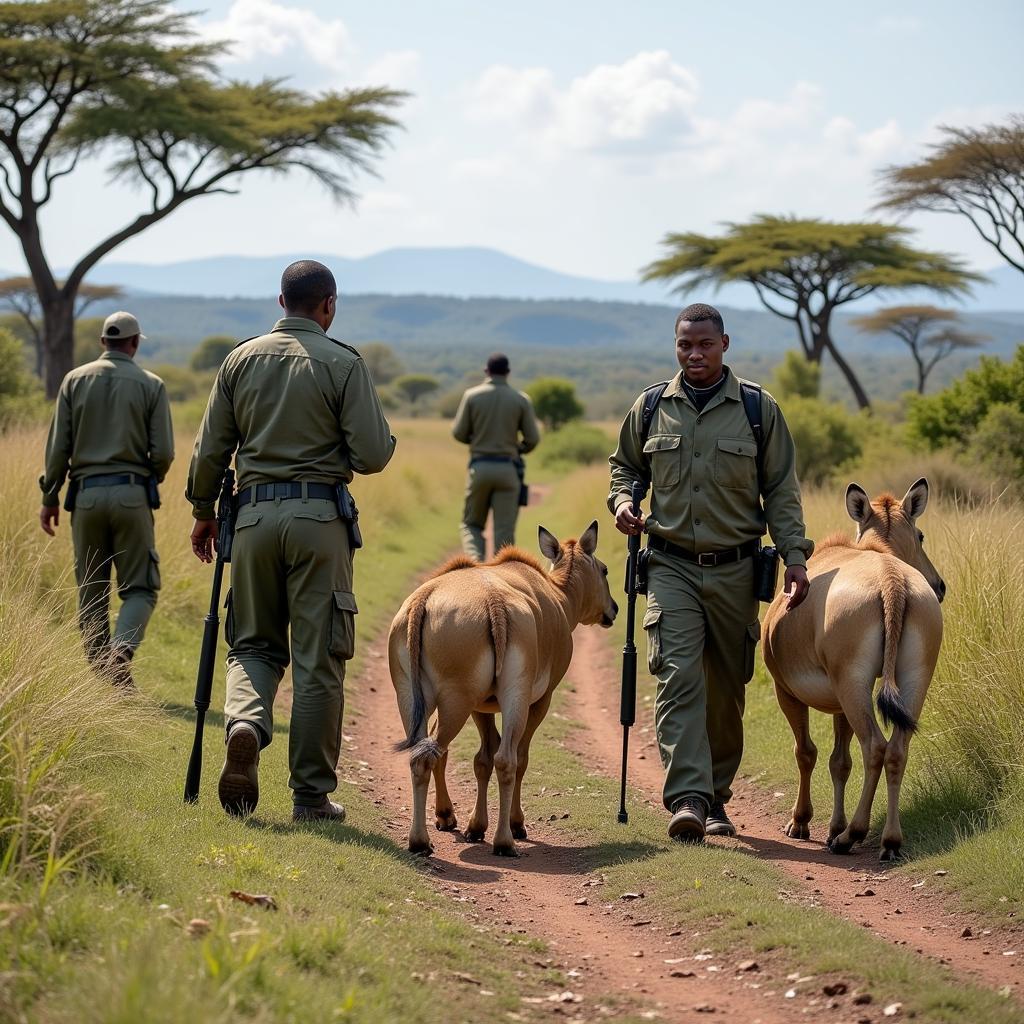African Circumcision Ceremony: Rites of Passage and Cultural Significance
African circumcision ceremonies are significant cultural practices deeply rooted in tradition and symbolize a transition from childhood to adulthood. These rituals vary widely across the continent, reflecting the diverse tapestry of African cultures, beliefs, and practices. They are not merely medical procedures but complex social events imbued with deep symbolic meaning, often involving elaborate preparations, celebrations, and community involvement.
The Maasai, a well-known East African tribe, maintain a strong tradition of circumcision as a crucial rite of passage. For them, it marks the transition from boyhood to warriorhood. The ceremony is a public affair, often performed during specific seasons and accompanied by songs, dances, and rituals that reinforce community bonds. After the circumcision, the newly initiated young men are secluded for a period of healing and instruction, learning the ways of the warriors and their responsibilities within the community. The ceremony is not only about physical transformation but also about instilling values of courage, discipline, and social responsibility. You can learn more about this tribe on our Maasai African tribe page.
The Significance of African Circumcision Rituals
Across various African communities, circumcision ceremonies represent far more than a physical alteration. They are symbolic acts representing a crucial step towards maturity, responsibility, and full integration into society. These rituals are often viewed as a necessary step for individuals to be recognized as adults and to participate in important social activities such as marriage and community decision-making. The ceremonies also serve to strengthen social cohesion and reinforce cultural identity within the group. For some communities, these rituals are also deeply connected to spiritual beliefs, representing a connection to ancestors and the divine. For girls, reaching puberty and womanhood is often marked by distinct rituals and celebrations, highlighting the importance of this transition within the community. Learn more about these customs on our African culture of girls page.
Variations in African Circumcision Practices
While the core significance of transitioning to adulthood remains constant, the specific practices and rituals associated with African Circumcision Ceremony differ significantly across the continent. Some communities practice male circumcision, while others focus on female circumcision. The age at which the ceremony is performed also varies, with some communities conducting it during infancy, while others wait until puberty or even later in life. The methods used, the level of community involvement, and the duration of the healing period also vary significantly based on local customs and beliefs. In some cultures, the ceremonies are elaborate public events, while in others, they are more private and intimate affairs within the family.
Why is Age a Factor in African Circumcision?
The age at which african circumcision ceremony is performed is often tied to cultural beliefs and traditions specific to each community. In some cultures, infant circumcision is practiced for reasons related to hygiene and health. In other cultures, the ceremony is delayed until puberty, marking the transition to adolescence and the assumption of adult responsibilities. This often coincides with initiation rites that prepare young people for their roles within the community. Some communities even perform circumcision later in life, often as part of a spiritual or religious journey.
The Role of Elders and Community in Circumcision Ceremonies
Elders and community leaders play a pivotal role in african circumcision ceremony. They are often responsible for overseeing the rituals, providing guidance to the initiates, and ensuring that the ceremonies are conducted according to tradition. They also transmit cultural knowledge and values to the younger generation, reinforcing the importance of community and the continuity of cultural practices. In many communities, the circumcision ceremony is a time of celebration and festivity, bringing the entire community together to support the initiates and celebrate their transition into adulthood. You might also be interested in exploring the unique traditions of African Israelite tribes.
Healing and Post-Circumcision Practices
Following the african circumcision ceremony, there is typically a period of healing and recovery. This period can vary in length depending on the specific practices of the community. During this time, the initiates are often secluded from the rest of the community, receiving care and instruction from elders or designated individuals. Traditional medicines and practices are often used to promote healing and prevent infection. This period of seclusion also provides an opportunity for the initiates to reflect on their new status and to learn the responsibilities and expectations that come with adulthood. More information on related traditions can be found on our African first sex page.
In conclusion, the african circumcision ceremony is a deeply significant cultural practice across diverse African communities. It represents a rite of passage, marking the transition from childhood to adulthood and embodying cultural values, social responsibility, and community cohesion. While the specific practices vary, the underlying significance of these ceremonies remains a powerful testament to the rich tapestry of African traditions.
FAQ
- What is the purpose of an African circumcision ceremony? It symbolizes the transition to adulthood and full integration into society.
- At what age are these ceremonies performed? The age varies depending on the specific cultural group, ranging from infancy to adulthood.
- Who oversees the ceremonies? Elders and community leaders typically play a central role.
- What happens after the circumcision? There’s a period of healing and seclusion, often accompanied by instruction and guidance.
- Are these ceremonies the same across Africa? No, the specific practices and rituals vary significantly across different communities.
- What is the role of women in these ceremonies? While often separate, there are significant rituals and celebrations for girls transitioning to womanhood.
- Are there any health considerations associated with these ceremonies? Yes, and traditional practices often address these concerns.
Looking for more information on African holidays and festivals? Visit our page on African holidays and festivals.
For further inquiries, please don’t hesitate to contact us. Call: +255768904061, Email: kaka.mag@gmail.com or visit us at: Mbarali DC Mawindi, Kangaga, Tanzania. We have a 24/7 customer service team ready to assist you.
